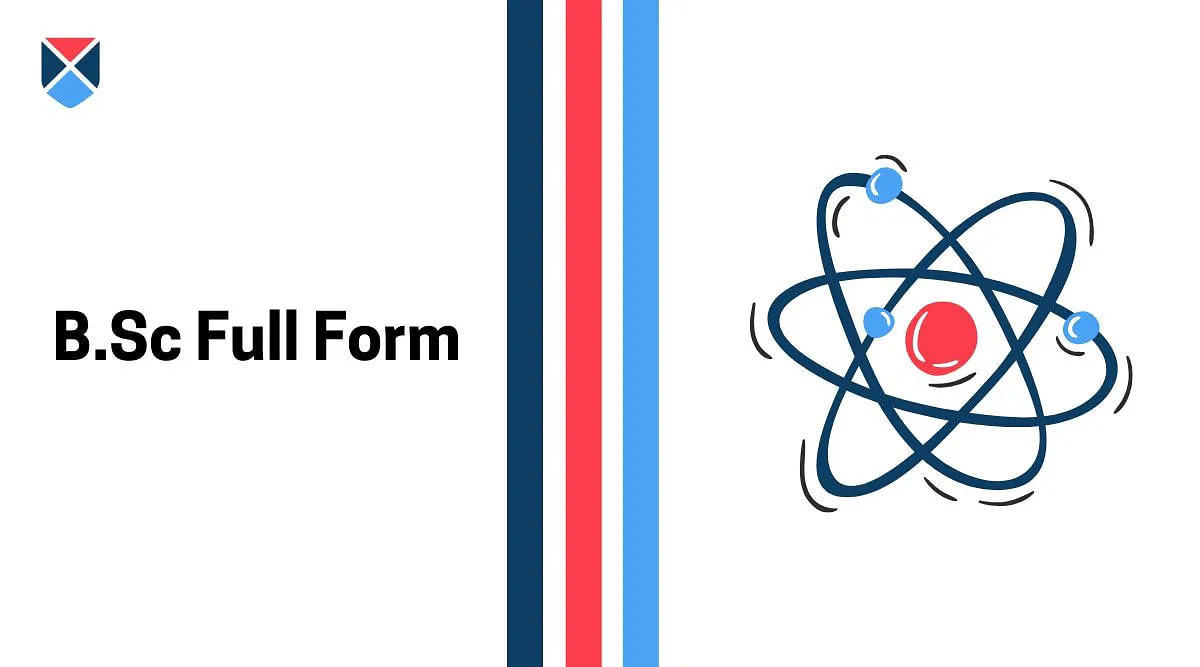Want to know what is the Full Form of BSc? Learn More about BSc Full Form, key functions and future prospects in this article.
Table of Contents
- What Is The Full Form Of a B.Sc?
- Key Highlights of the B.Sc Program
- Eligibility Criteria for B.Sc Course
- Who Should Pursue a B.Sc Course?
- How To Get Into B.Sc?
- Key Functions Of B.Sc
- Impact Of A B.Sc In The Field Of Science
- Professional Sectors To Join After B.Sc
- Future Prospects After B.Sc Qualification
What Is The Full Form Of a B.Sc?
BSc full form stands for Bachelor of Science. B.Sc course is a three-year-long science-oriented course that aims to introduce students to all the vital and key concepts related to scientific studies. The duration of the B.Sc course can vary if students decide to pursue the stream in a different country. B.Sc is the second-highest attempted course in India after BEd.
When pursuing B.Sc students are presented with many specializations, including Chemistry, Mathematics, Physics, Botany, Zoology, etc. Computer science, Biotechnology, Nursing, IT, Agriculture, Nautical Science, Chemistry, Physics, etc. Students can go through this article for more details regarding the B.Sc course and its key functions.
Key Highlights of the B.Sc Program
Given below are the key highlights of the B.Sc course:
- The B.Sc course is a three-year-long undergraduate course.
- After B.Ed, it is the second-highest attempted course in India.
- The students have the scope to study B.Sc and B.Sc Hons, based on their capacity and eligibility.
- There are many streams and specializations under the B.Sc course umbrella that the students can pursue.
Eligibility Criteria for B.Sc Course
Given below are the eligibility criteria for the B.Sc course:
- Students should pass their 10+2 with a minimum aggregate of 50% from a recognised university.
- The students should give the required entrance exams.
- There is no age limit for the B.Sc course admission.
- Students should core topics such as Mathematics, Physics, Chemistry and Biology in their 10+2.
Who Should Pursue a B.Sc Course?
Students who have completed the 10+2 science education may pursue a B.Sc. programme in a variety of fields. It is advised that applicants who have a good background in science and mathematics seek a BSc degree. The course will be especially useful for students who want to pursue multi- and interdisciplinary science careers in the future.
How To Get Into B.Sc?
To get admission to the B.Sc course, students must ensure that they are aware of the eligibility criteria. After which, students must research the college’s means of admission. Some colleges give admissions based on merit, while others might require entrance exams.
Students can apply for admission and fill out the form by visiting the college’s website or going to the college’s onsite admissions office.
Key Functions Of B.Sc
Given below are the key functions of a B.Sc course:
- The purpose of studying a BSc programme is to inculcate theoretical, practical and research skills among students.
- The BSc programme provides basic knowledge of the major Science subjects to the students.
- Additionally, a B.Sc course aims to ensure that the students are able to learn about the vital concepts related to the science behind the field they may choose to pursue.
Impact Of A B.Sc In The Field Of Science
The B.Sc. abbreviation covers a wide range of scientific subjects. This three-year programme solidifies the students' foundation of scientific knowledge, both theoretical and applied. The students are shaped by their practical understanding of the disciplines, which also prepares them for pursuing further studies in the same field.
It is possible to pursue careers as a scientist, professor, teacher, researcher, chemist, lecturer, enumerator, and consultant after successfully finishing your B.Sc. and M.Sc. (Masters of Science) degrees. Overall, the bachelor of science opens up a number of career paths.
Professional Sectors To Join After B.Sc
With a bachelor's in science, you can pursue a number of different careers. You can work as a teacher or professor at a variety of renowned educational institutions. If not, you can work as a scientist or researcher for research groups. After earning a Bachelor of Science, you can also join the forest service.
In addition to these, a wide range of opportunities emerges that will let you establish a career in industries like a testing laboratory, the oil industry, biotechnology firms, hospitals, geographic survey firms, and pharmaceutical firms.
Future Prospects After B.Sc Qualification
Candidates can apply for post-graduate programmes like M.Sc. or Master of Business Administration after earning their B.Sc degree.
If the applicant wants to work, there are many positions available in both the public and commercial sectors for a science graduate with a decent score. A teacher in a school or a college, a research assistant in a lab, a consultant, a drug safety associate, a clinical research assistant, etc. are a few examples.























POST YOUR COMMENT